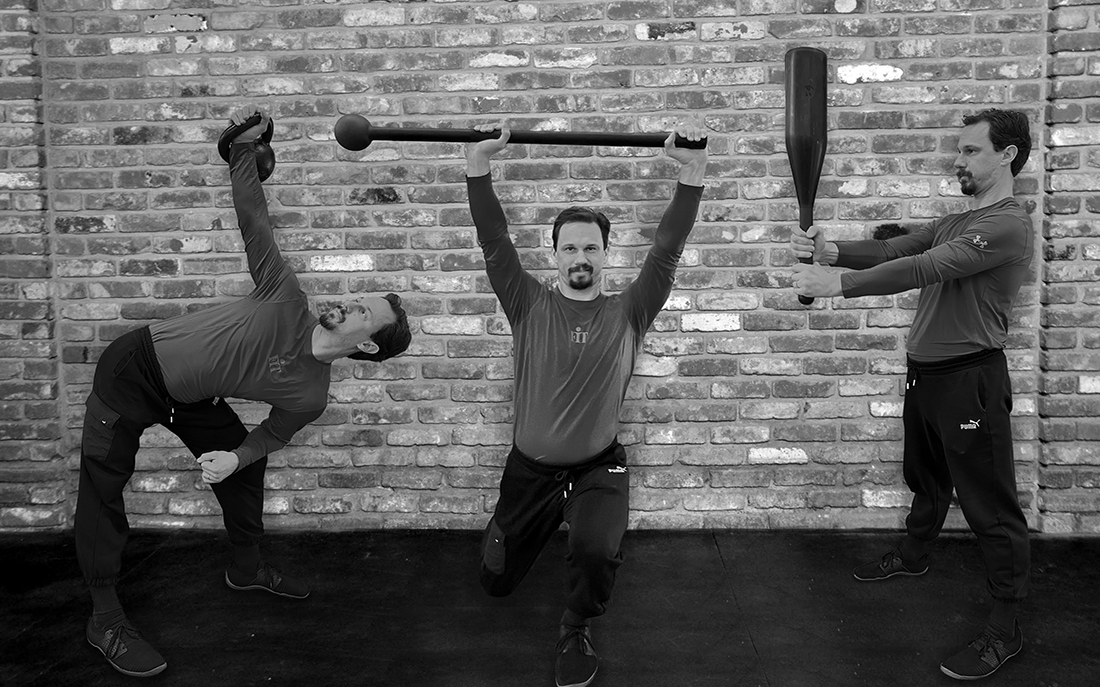Spending several years in a medical setting, I have become acquainted with reading research studies and identifying the conclusions and ramifications – even if they are not completely the same as those published by the authors in the paper. There has been a study discussed in the news recently that has piqued just this interest in me – perhaps you have heard of it: “Egg yolk consumption and carotid plaque.”
In this study, published in the journal Atherosclerosis, Spence and his colleagues wanted to examine the link between egg yolk consumption and atherosclerosis. The authors point out that this has, for some time, been a controversial issue, with previous studies falling on both sides of the debate – some state that eating egg yolks raises serum cholesterol while other studies saw no change. In an effort to identify whether or not eggs are, in fact, deleterious to cardiovascular health, Spence, Jenkins, and Davignon decided to look at a different marker in examining risk for cardiovascular disease: total plaque area.
That’s a lot of science to start out this article, so I’ll back track a little bit. While we might debate its validity, cholesterol is still a leading indicator for risk of cardiovascular disease and coronary heart disease. Generally speaking, cholesterol values can be broken down into high-density lipoprotein (HDL – “good” cholesterol) and low-density lipoprotein (LDL – “bad” cholesterol). As LDL increases as a proportion of total cholesterol (or often times as a ratio compared to HDL and/or triglycerides), the risk for disease increases. Because the effects of egg yolk consumption on cholesterol have been equivocal up to this point, the authors must have wanted to use a different variable, hence measuring total plaque area.
So why did this study get me worked up? Firstly, it was the inflammatory headline that ran on CNN: “Egg yolks as fatal as cigarettes”. Secondly, when I sat down to read the study, the authors made some pretty broad generalizations and gross over simplifications. To start with, in order to identify egg yolk consumption over time, the authors culled information from “lifestyle questionnaires” from patients “at the time of referral” to a vascular prevention clinic after transient ischemic attacks or strokes. Simply put, the authors asked patients how many eggs they had eaten through their lives on a questionnaire. These were patients who had already had an transient ischemic attack or stroke (A transient ischemic attack – or TIA – is when blood flow to a part of the brain stops for a brief period of time. A person will have stroke-like symptoms for up to 24 hours, but in most cases for 1 – 2 hours. A TIA is felt to be a warning sign that a true stroke may happen in the future if something is not done to prevent it.). Inferring anything about lifestyle or dietary habits of healthy individuals based on the presentation of sick individuals is extremely confounding and usually not very accurate because of physiological changes brought on by the disease process.
The other problem with how Spence and his colleagues collected the data was with their dietary recall. The average age of the subjects in the study was 62; how was someone expected to remember how many eggs they had eaten throughout their life, let alone even what they ate last week? As fitness professionals, we are intimately tuned into our nutrition, but I for one, can’t even recall what (let alone how much) I ate last month. Additionally, egg consumption was the only dietary variable that the authors examined. I would highly doubt that most people eat eggs in isolation of other foods, and for that matter, wouldn’t these other foods possibly contribute to – OR – take away from accumulation of plaque in the arteries?
OK so those are the fatal flaws of the study on it’s surface. What next? The authors wanted to relate any atherosclerosis brought on by egg consumption to previously known plaque producers. So what did they do? They compared eating eggs to cigarette smoking! How are these two habits AT ALL comparable? One habit is a known carcinogen, destroyer of lung tissue, and HIGHLY addictive. The other, however, is a complete food uniquely designed to sustain life. Can you tell which one is which?
If you’re still keeping up, the authors showed that increasing egg consumption ran almost parallel to cigarette smoking with regard to accumulation of arterial plaque, with both showing a direct exponential relationship as consumption (or smoking frequency) increased. WOW! So maybe eggs are pretty bad for you huh? The general consensus that we, as a staff, drew from this study was that it really only relates to those already at risk for coronary heart disease and/or strokes. We make recommendations to clients with respect to their nutrition and eating habits for improving their health and fitness. We do need to keep this study in mind when making those recommendations, but for the vast majority of our clients who have not experienced a cardiac episode or stroke, or are at risk for them, this study is not all that relevant.
What does this mean for all of you? Keep eating those eggs! Eggs contain a multitude of vitamins, minerals, and other micronutrients that are hard to come by from other foods (choline anyone?). Additionally, they are a great source of easily digestible protein needed for recovery from workouts and keeping the body health. While eggs do contain cholesterol (about 200mg per egg) your body NEEDS cholesterol to function properly. Everybody needs cholesterol to maintain a healthy balance of all number of hormones, including the sex hormones, which many researchers believe are important for maintaining vitality. Do, however, make sure that these eggs are part of a healthy meal full of ripe brightly colored fruits and vegetables. And be sure to peruse the archives of the blog, as there are several great tasty egg recipes throughout.
If this got you all worked up over egg consumption, check the following rebuttals to learn more about it from very well informed scientists, researchers and nutrition consultants:
Mark’s Daily Apple
Zoe Harcombe
Outside Magazine
Chris Masterjohn (Weston A Price)
Kira Vargas
Personal Trainer
Contact
Kira brings a unique perspective to fitness coaching, combining her engineering background with a passion for movement and community. A graduate of Carnegie Mellon University with a B.S. in Materials Science Engineering, Kira spent five years in the tech industry before pivoting to fitness. Over the past four years, she has honed her coaching skills at a CrossFit gym in South San Jose, specializing in group classes, Olympic weightlifting, powerlifting, gymnastics, and functional fitness. Her clients range from young adults to seasoned athletes in their 80s.
Kira’s own journey in fitness has been transformative—she’s lost 25 pounds since starting CrossFit and gained a deep appreciation for how consistency and patience unlock personal potential. In an age of instant gratification, she advocates for small, consistent steps, helping her clients build strength, resilience, and self-respect. Her philosophy is simple: show up, work hard, and anything is possible.
When she’s not coaching or training, Kira enjoys competing in CrossFit, exploring new sports, experimenting with ice baths, and indulging in great food.
What I love about FiT: FiT is more than a gym, it's a place where you can transform your entire life. The leaders and staff here have their heart in the work, and truly care about creating positive change in the lives of our members.
Certifications:
•CrossFit Level 2
•ISSA Certified Personal Trainer
•USA Weightlifting Level 1 (expected January 2025)

Christian Lee
Personal Trainer
Contact
What I love about FiT: The supportive energy and environment. The staff is legitimately there to help when it comes to just about anything. It helps that they are all extremely capable as well. Another thing that I love about FiT is its approach. FiT's philosophy centers on more than just exercise and nutrition. It focuses on an all-around emphasis on health and well-being that include sleep and stress management strategies.

Nick Weigel
Physical Therapist
Contact
Nick graduated from The Ohio State University in 2010 with a degree in English. His focus at that time was to continue rowing competitively, which brought him to the Boston area. There he completed his Doctorate of Physical Therapy from Massachusetts General Hospital Institute of Health Professions in 2018.
In Boston Nick worked at a clinic well known for treating professional runners and other endurance athletes. He enjoyed working with high schoolers and their parents the most. It was here he developed a passion for treating tendinopathy. Having had his own experience with a high hamstring tendinopathy he found it helpful to be able to empathize with others going through this uniquely frustrating condition. It also was here that Nick first started to learn about bike fitting and he has since gone on to obtain his Level 1 International Bike Fit Institute certification.
Nick has enjoyed being a competitive endurance athlete for 17 years. He has gone from world championship trials as a rower, running 5ks to half marathons to ultra trail runs in the White Mountains, to racing UCI cyclocross as a category 2 cyclist. Nick no longer races competitively due to a heart condition but you can now find him olympic weightlifting, mountain biking or gravel riding, taking photos of bike races, or hiking with his wife and 2 dogs.
Nick enjoys taking an active treatment approach with an emphasis on play and variability, he believes movement is the best medicine, and often complex problems have simple solutions.

Kristin Pampeyan
Trainer
What I love about FiT: That everyone is invested in the community whether it's by hosting additional activities or sharing knowledge. It's all to make each other better and help out the clients.
Favorite sports: Swimming and Softball

Dae-Von Bishop
Personal Trainer
All the way from East Palo Alto, Dae-Von was an avid basketball player and fan since the age of 10. From Eastside College Prep to Sonoma State to Foothill where he received his AA in psychology. Dae-Von developed a passion for training and helping others stay active and healthy after a bad ankle sprain in high school that occurred during the basketball season. Dae-Von received training the following summer at The Riekes Center, leading him to have a healthy senior year season as well as making 2nd team all league.This is what inspired him to become a trainer and help other athletes stay in great shape. At 20 years old, Dae-Von’s personal training journey began at The Riekes Center, and he hasn’t looked back since.
Dae-Von holds certifications in personal training through NASM, archery, as well as speed and agility and weightlifting both through NSPA. He even will do some basketball skill development on the side for young hoopers. His goal is to help people stay as fit and active as possible with little to no complications. I love training groups of athletes in either middle or high school. Those age groups tend to be the best time for athletes to get faster and stronger, as well as they begin to understand movement patterns which allow them to perform at an elite level. There is also a natural competitive aspect of training in groups that pushes kids to go harder during drills.
In his free time, you can find Dae-Von shooting hoops, working out, playing video games, spending time with friends, trying new foods(as long as there is no avocado), or hanging out with his frenchie, Trouble.
- Personal Trainer (NASM)
- Certified Speed and Agility Coach (National Sports Performance Association)
- Certified Weightlifting Coach (National Sports Performance Association)
- Archery Lvl. 2 (USA Archery)

Jon Angeles
Trainer

James Frederick
Trainer
Contact
-
Dynamic Variable Resistance Training (DVRT) Level 1 Certification
-
Certificate in Nutrition (FAB Academy)
-
Certificate in Applied Stretching Theory and Practice (FTP)
-
NASM-CPT

Hannah Golden
Trainer

Serena Earwicker
Operations Manager
Contact
Serena manages the day-to-day operations at FIT. If you need help with something apart from training, she is the one to get it done.
Outside of FIT you will find Serena hiking, biking and playing at the beach with her family.
What I love about FiT: FiT is welcoming and supportive to all. It feels like a hug, a sweaty one. Haha
Favorite sports: Anything I get to see live! Love the energy.

Tracey Downing
Owner
Contact
Tracey Downing has dedicated her life's journey to empowering individuals to discover newfound confidence in their physical abilities and take command of their long-term well-being. Together with her husband, Thom, she established FiT, a health promotion company, in 2000, impacting numerous lives by guiding them towards positive lifestyle shifts and instilling the importance of prioritizing their health.
Her academic journey at the University of Michigan, where she graduated with a degree in Kinesiology, was complemented by a vibrant period of exploration. Tracey's adventures took her across the globe to live in places like New Zealand, Ireland, and Scotland. These enriching experiences allowed her to indulge her passion for travel while simultaneously nurturing her professional growth, with roles in clinical and professional sports settings.
Beyond her entrepreneurial pursuits, Tracey treasures her role as a mother to two wonderful children. Outside of her business endeavors, she has completed an Ironman Triathlete, a testament to her unwavering determination, had the incredible honor of being an Olympic Torch Bearer for the Salt Lake City Olympics, and is a 20 year survivor of breast cancer.
In Tracey's world, fostering physical wellness is not just a profession; it's a lifelong vocation driven by a genuine desire to inspire and uplift others on their unique journeys toward lasting health and vitality.
What I love about FiT: Seeing people change: doing more than they thought they could, learning more than they thought they would, and showing up to make themselves better.
Favorite sports: Playing tennis and watching anything my kids are playing

Kendra Wagers
Massage Therapist
Contact
Kendra Wagers has been a Massage Therapist since 2001. A native to California, she began her massage career in the Central valley working with various injury and chronic pain methods under experienced Chiropractors and physical therapists. In 2003 she relocated to Las Vegas, NV to attend the Nevada School of Massage Therapy’s accredited massage program which led to obtaining her National certification from NCBTMB. For over 13 years she worked as a licensed massage therapist in Nevada, including employment at top rated Spas on the Las Vegas strip. Receiving training in various modalities over the years including; Hawaiian Lomilomi, Thai, Sports and Shiatsu. In January of 2017 Kendra decided to return to California and is currently enrolled in the Traditional Chinese Medicine program at Five Branches University, furthering her education on overall health and wellness. With more than 17 years of experience and over 1500 hours in training Kendra has been able to hone in on her passion for healing while combining multiple techniques to provide a personalized and detailed massage to every guest. Her serene approach combined with her roots in structural techniques, offers harmony, balance, and ease to injuries or everyday stresses.
CA State Massage License #73011

Katie Deangelis
Personal Trainer
Strength and Wellness Coach
- American Council on Exercise
- Crossfit Level One
- NSCA Certified Strength and Conditioning Specialist, In Progress
- Precision Nutrition Level 1 Certified, In Progress

Kevin Martin
Strength and Wellness Coach
Personal Trainer
Certified Strength and Conditioning Specialist
OPEX CCP
Contact
Kevin graduated from Trinity University in San Antonio, TX with a B.S. in Business Administration with a focus in marketing. As a student, Kevin was a five-time conference champion in the 1-meter and 3-meter springboard diving events. He is a Certified Strength and Conditioning Specialist with the National Strength and Conditioning Association.
He has a particular passion for rehabilitation and improving overall functional status. He enjoys identifying and correcting areas of the body that are not operating at their full potential so that everyone can live life to the fullest!
Kevin has completed a full ironman, multiple 70.3 triathlons, 2 full marathons, as well as several shorter distance triathlons and road races. In addition to triathlon, he has a background in gymnastics, swimming, diving, and volleyball. He enjoys helping everyone find the athlete within themselves and find a love for movement and exercise.
When Kevin isn’t training at FiT or exercising, he enjoys cooking, surfing, hiking, and spending time with his wife and dog. He especially loves being a father his young daughter Mayley.
What I love about FiT: Community, Hard work, Supportive, Fun
Favorite sport: Volleyball, Surfing, Diving, Running, Cycling, Swimming (triathlon), Weight lifting. I love watching all sports.

Juliana Oliveira
Trainer
Contact
What I love about FiT: I love the schedule flexibility.
Favorite sports: Snorkeling and swimming

Angelo de la Cruz
Orthopedic Massage Therapist & Personal Trainer
Contact
While studying biological sciences at Cal Poly SLO, it became clear that my health was suffering. I was always tired, I couldn’t sleep well, I had digestive issues, and my emotions would swing dramatically at times. The realization came that in order for me to enjoy life to its fullest, I had to get serious about improving the quality of my health.
Since then, I’ve studied with doctors, physical therapists, clinical nutritionists, physical trainers, bodyworkers, and top innovators in the field of health & wellness. Instead of chasing the symptoms of illness, the most effective approaches to well-being are those that work to eliminate things that degrade health AND instill lifestyle habits that allow the natural environment of our bodies and mind to operate as efficiently as possible. In this way, we can be lead lives with less pain & sickness.
My work aims to use the technology of the body to help you live a more vibrant & productive life.
Some of the things I have fun doing are Olympic Weightlifting, breakdancing, parkour & free-running, snowboarding, creating electronic music, digital art photography/ videography, competing in American Ninja Warrior (My competition run is here) & learning about quantum physics.
What I love about FiT: Uplifting, motivating, supportive
Favorite sport: Martial Arts, ninja warrior obstacle courses, break dancing
- Former Life Science Support Scientist at NASA Ames Research Center
- Certified High Performance Coach
- 2nd Degree Black Belt in Taekwondo
- CrossFit – Level 1 Certification
- USA Weightlifting Club Coach Certification
- Intrinsic Coach Certification – Life & Health Coaching
- BS Anatomy & Physiology
- American Massage Therapy Association – Professional Member
- Nationally Certified in Therapeutic Massage & Bodywork
- Certified Hendrickson Method Instructor
- Primal Reflex Release Instructor
- Certified Massage Therapist
- Certified Functional Diagnostic Nutrition Practitioner

Shaun Conness
Trainer
- USAW Club Coach
- NASM Certified Trainer
- TPI Golf Fitness Instructor
- CHEK Practitioner Level 1
- CHEK Certified Golf Biomechanics Specialist

Jennifer Mulry
Personal Trainer
Contact
What I love about FiT: I love the family atmosphere at FiT and the collective effort to all be the healthiest version of ourselves.
Favorite Sport(s): Basketball & Swimming

Jeff Samson
Trainer
Martial Arts Trainer
Assisted Stretch Practitioner
Contact
Jeff has been working with clients in the Bay Area since 2007 and performs personal training, martial arts instruction, and assisted stretching to youth, working adults and retired seniors. Most of his youth was spent as an unathletic chubby kid who found various ways of getting into trouble. It wasn't till he was a young adult that he began to study fitness, train himself and learn martial arts. He entered and won a fitness transformation competition in 2006 which changed his life forever. The personal training he received and positive changes he saw from the competition inspired him to teach others.
Jeff went back to school and earned his Fitness Specialist certification through the Wellness and Human Performance Department of Mission College and has held certifications in Circular Strength Training, USAW Olympic Weightlifting, and Bioforce Conditioning Coach. He currently holds a BA in Humanities from The New College of California, is a Life Stretch Instructor through the Stretch to Win Institute and certified FST (Fascial Stretch Therapy) practicioner.
Jeff is a longtime local having lived in California all his life from San Diego to the Bay Area. When he's not training clients or learning new things about health and fitness he enjoys trying new restaurants, sipping specialty coffee, whiskey tasting, looking for whales in the sea and taking road trips.
What I love about FiT: Great space, staff, clients, ability to pursue my passions
Favorite sport: Jiujitsu

